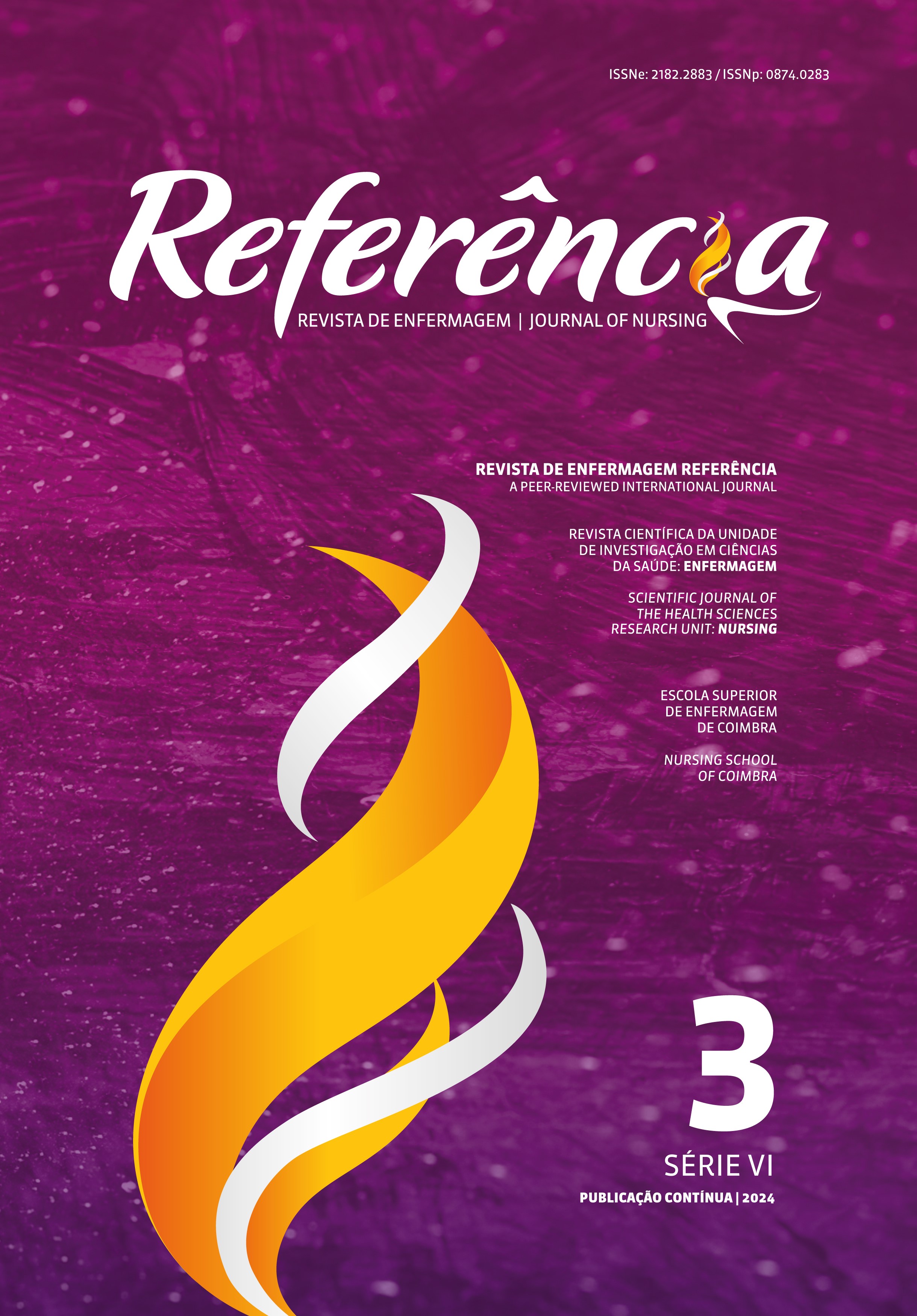The lifestyles of Portuguese adolescents: Use of the FANTÁSTICO questionnaire
DOI:
https://doi.org/10.12707/RVI24.74.36656Keywords:
life style, adolescent, health promotion, school health services, public health nursingAbstract
Background: The transition to the second cycle of basic education is characterized by several changes that present adolescents with different social, emotional, and relational challenges that are likely to influence their healthy lifestyles.
Objective: To describe the lifestyles of adolescents attending the second cycle of basic education in the Autonomous Region of Madeira, Portugal.
Methodology: A cross-sectional descriptive-correlational study was conducted with a probability sample of 170 adolescents from five schools in the Madeira Archipelago, using the FANTÁSTICO questionnaire.
Results: The participants were mostly adolescents aged 10 years (77.10%). The lifestyle measurement revealed that 56.5% of the participants were at the “Very Good” level. The dimensions with the least positive scores were “Physical and Social Activity,” “Insight,” “Nutrition” and “Health Control and Sexuality.”
Conclusion: Assessing the lifestyles of adolescents allowed the characterization of this population and the identification of intervention foci that were considered highly relevant for the implementation of health promotion interventions.
Downloads
References
Hormigo, M. G. (2019). Implementação e avaliação do programa #EntreViagenseAprendizagens: Impacto nos estilos de vida, regulação emocional e bem-estar dos adolescentes [Dissertação de mestrado, Universidade Católica Portuguesa]. Repositório Institucional da Universidade Católica Portuguesa. http://hdl.handle.net/10400.14/29544
Leidy, H. J., & Gwin, J. A. (2020). Growing up strong: The importance of physical, mental, and emotional strength during childhood and adolescence with focus on dietary factors. Applied
Physiology, Nutrition & Metabolism, 45(10), 1071-1080. https://doi.org.10.1139/apnm-2020-0058
Loiza, D. P., Álvarez, C. V., & Vargas, L. J. (2015). Validación de contenido y adaptación del cuestionario Fantastico por técnica Delphi. Salud Uninorte, 31(2), 214-227. http://dx.doi.org/10.14482/sun.31.2.5583
Organização das Nações Unidas. (1989). Convention on the rights of the child. https://www.ohchr.org/en/instruments-mechanisms/instruments/convention-rights-child
Organização Mundial de Saúde. (2022). WHO european regional obesity report 2022. https://www.apn.org.pt/images/noticias/2022/9789289057738-eng.pdf
Rodrigues-Pires, F., Festas, C., Amado, J., Neves-Amado, J., & Almeida, S. (2023). O meu estilo de vida FANTASTICO: Tradução, adaptação e validação do questionário em pré-adolescentes portugueses. Revista de Enfermagem Referência, 6(2), e22108. https://doi.org/10.12707/RVI22108
Sánchez, C. C., & Gualteros, J. A. (2023). Gestión del riesgo en salud en adolescentes de una institución educativa de Cundinamarca en pospandemia de COVID-19. Biomédica: Revista del Instituto Nacional de Salud, 144.
Sevilla-Vera, Y., Valles-Casas, M., Navarro-Valdelvira, M. C., Fernández-Cézar, R., & Solano-Pinto, N. (2021). Hábitos saludables en la niñez y la adolescencia en los entornos rurales: Un estúdio descriptivo y comparativo. Nutrición Hospitalaria, 38(6), 1217-1223. https://dx.doi.org/10.20960/nh.03484
Silva, A. M., Brito, I., & Amado, J. M. (2014). Tradução, adaptação e validação do questionário Fantastic Lifestyle Assessment em estudantes do ensino superior. Ciências & Saúde Coletiva, 19(6), 1901-1909. https://doi.org/10.1590/1413-81232014196.04822013
Wilson, D. M., Nielsen, E., & Ciliska, D. (1984). Lifestyle assessment: Testing the FANTASTIC instrument. Canadian Family Physician, 30, 1863-1866. https://europepmc.org/backend/ptpmcrender.fcgi?accid=PMC2154238&blobtype=pdf
Woods, N., Gilliland, J., & Seabrook, J. (2023). Applicability of the socioecological model for understanding and reducing consumption of ultra-processed foods in Canada. Canadian Journal of Dietetic Practice & Research, 84(1), 38-42. https://doi.org.10.3148/cjdpr-2022-027






















